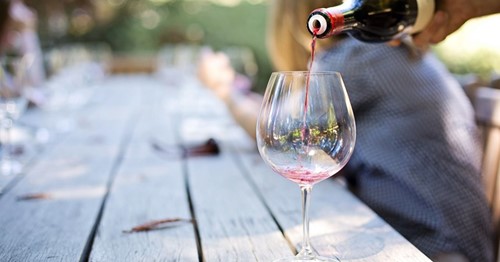QUESTION: The end of year is approaching and I have been reflecting on my drinking habits. I feel I drink too much alcohol and would like to address this. I used to enjoy a few glasses of wine on Friday night and then Saturday nights, but over the past year, I find myself drinking every night. I feel this is impacting on my health and my family. How much is too much and how do I begin to make my health a priority again?
ANSWER:
 If you feel you are drinking too much, you are probably right. You are the expert in your life and how you feel. Your concern indicates that your alcohol consumption does not fit with who you want to be as a person, nor does it match your health and relationship goals.
If you feel you are drinking too much, you are probably right. You are the expert in your life and how you feel. Your concern indicates that your alcohol consumption does not fit with who you want to be as a person, nor does it match your health and relationship goals.
What makes alcohol consumption problematic is influenced by a few factors: quantity, frequency, health conditions which are negatively impacted by alcohol, the impact on your family and your reasons for drinking. If you are generally a healthy person (physically and emotionally), then drinking within the recommended guidelines is of no concern. There are certain situations where no level of alcohol is considered safe (such as during pregnancy) and if you are uncertain, please seek further professional advice.
The Australian Alcohol Guidelines developed by the National Health and Medical Research Council recommend the following in order to reduce the risk of harm from alcohol-related disease or injury:
- For healthy men and women, who drink regularly, drinking no more than two standard drinks on any day
- Drinking no more than four standard drinks on a single occasion.
However, one glass of wine is usually considered more than one standard drink – anywhere between 1.4 and 1.6 standard drinks.
There are so many conditions which develop as a result of excessive alcohol consumption; however, health risks are not usually what lead people to make changes for the better. Long lasting change is more successful if you consider the things that are most important to you, such as family, relationships and health. Make these your motivation to change.
Ask yourself the following questions and perhaps write down your responses to them:
- In relation to your physical and emotional health, who do you want to be? Do you want to be someone who eats healthy foods, drinks in moderation or doesn’t drink at all, wants to be physically active?
- In relation to your family and other relationships, who do you want to be? Would you like to be someone who spends quality time with family on a regular basis? Someone who enjoys doing outdoor activities with the family?
Your reasons for change and who you want to be are personal. Having considered the kind of person you want to be according to your values, set yourself some achievable short-term and long-term goals. What small steps can you take today to live a healthier and more fulfilling life? How would you identify successfully working towards the values associated with your physical health?
For additional help, the following may be useful:
- Talk to your GP about options, including a general health assessment.
- In NSW, you can contact the alcohol and other drug helpline for a confidential discussion on 1800 422 599 (24/7).
- Contact your local community health centre or the Drug and Alcohol Triage & Referral Service on 1300 660 059.
- Make an appointment for counselling. Talking to someone outside your family can help to work through the emotional aspects of alcohol use. You can contact CatholicCare for an appointment on 4979 1172.